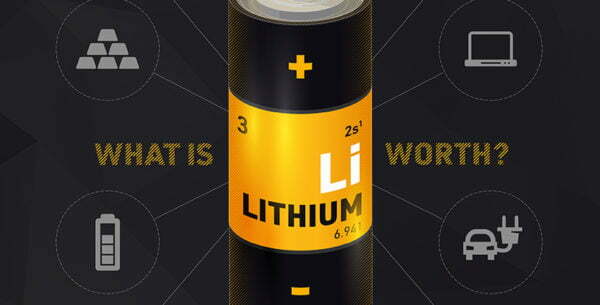Lithium technology competition heats up

Lithium technology companies are jostling for a foot in the door of the rapidly accelerating North American integrated battery metals supply chain, whether becoming a battery precursor material manufacturer or a potentially disruptive lithium direct extraction tech provider.
Vancouver-based Nano One Materials Corp (TSX: NANO; US-OTC: NNOMF) on May 25 announced the acquisition of lithium iron phosphate (LFP) cathode material maker Johnson Matthey Battery Materials Canada for $10.25 million.
The acquisition includes the team, facilities, equipment, land and other assets, with the team together contributing more than 360 years of scale-up and commercial production know-how.
Notably, the facility includes a 2,400 tonne per year LFP plant in Candiac, Quebec.
The company stresses the plant occupies one-tenth of the 400,000 sq.ft. property, leaving ample room for expansion.
“The rapidly expanding need for responsibly produced cathode materials in North America presents an opportunity for Nano One to deploy its technology and become a leader,” said Nano One CEO Dan Blondal.
He described the initiative as a “critical link in the mines-to-mobility initiative.”
The acquisition is fully funded and is on a cash-free, debt-free basis, subject to certain working capital adjustments. The transaction is expected to complete by 2022, subject to JMBM Canada fulfilling contractual commitments and certain other customary closing conditions.
Johnson Matthey acquired the Candiac facility in 2015, which has been in operation since 2012. It supplies cathode material to the lithium-ion battery sector for automotive and non-automotive applications for a select group of customers.
The company expects its strategic location in Quebec to provide it with the benefit of access to a North American ecosystem, which will serve the broader global community with cost-effective, resilient, and environmentally sustainable cathode materials.
At $2.31, Nano One’s TSX-quoted equity gained 42.2% in early trading on May 25, giving it a market capitalization of more than $200 million. However, over the 12-month frame, the stock is still down 47%.
Direct extraction technology
Meanwhile, physical chemist Jack Lifton, the man credited for coining the term ‘technology metals’ back in 2007, tells The Northern Miner he is excited about a direct lithium extraction technology a company he is involved with, One World Lithium (US-OTC: OWRDF; CSE: OWLI), has recently licenced from the US Department of Energy.
The scientist views the newly licensed technology as vertically integrating the production of battery-grade lithium carbonate directly from brines in a single reactor. The problem is the patents issued to the DoE are still so fresh, and with the licencing deal just executed, One World is looking for an in-field brine source to test out its kit.
“As a mining company, we remain focused on prospective properties of merit that may contain recoverable lithium at a commercial scale, from a wide range of concentrations,” said Lifton in an interview.
“We can vertically integrate such a deposit into the company to include the highest value-added form of that commodity by focusing on an advanced direct lithium extraction process for the extraction and separation of lithium from natural brines, directly generating lithium carbonate,” he said.
“In summary, we will focus on developing properties as assets that fuel our ability to offer low-cost lithium separation and direct production of battery-grade lithium carbonate.”
The extraction method uses unique carbon dioxide injection mixing techniques to precipitate lithium carbonate from brines quantitatively. This process requires no solvent, electrodes, membranes, or sorbents. It only uses carbon dioxide from industrial waste, exhaust gas streams, or even ambient air.
It significantly reduces capital and operation costs, process time, energy requirements, and, paradoxically, overall carbon dioxide emissions.
According to Lifton, the process is fully deployable and operational at the brine source, eliminating the need to evaporate the brines and/or transportation of brine concentrates to a chemical processing facility to form and purify lithium carbonate. Deployment of this technology will reduce dependence on foreign lithium sources.
However, it joins a widening circle of lithium tech-focused companies hoping to commercialize their particular brand of direct extraction technology. The proof, however, lies in whether any of these companies can move beyond successfully demonstrating bench-scale testing in the laboratory to demonstrating the economical value of the new technology in an in-field application.
At 3c per share, One World’s equity is down about 71% over the past 12 months, giving it a market capitalization of $5.4 million.
Source: NorthenMiner


